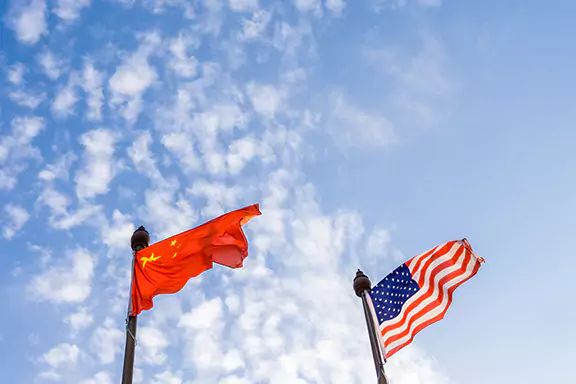Last week, a Chinese friend of mine who just moved to California asked why her American coworkers openly disagreed with their manager during a meeting. She was shocked and not just because they were rude, but because back in her Chinese company, such open disagreement would never happen in front of others. That small example shows just one of the many differences between US and Chinese culture. If you’re a Chinese immigrant living in the U.S., you’ll likely notice similar moments, whether big or small, that make you pause and reflect.
This article explores the major differences between Chinese and American culture, especially for those navigating personal and professional lives in the U.S. It’s not about saying one way is better, but we want to point out the differences. The more cultural awareness we have, the easier it is to adapt, connect, and succeed in our new communities.
1. Communication Styles: Direct vs. Indirect
One of the biggest differences between Chinese and American culture is the way people communicate. In the U.S., people value direct communication. Americans are taught from a young age to “speak your mind” and honor others’ opinions, even if they disagree.
In contrast, Chinese communication tends to be more indirect. We often use indirect ways to share thoughts or raise concerns, especially in business relationships. Saving face is important in Chinese culture, so criticism is often softened or hinted at. Americans may see this as “sugar coating,” while Chinese people may find American honesty too blunt.
For example, if your American manager says, “This report needs a lot of work,” they’re not insulting you personally. They’re just being direct. Don’t take things personally. In fact, they often prefer honesty and see it as helpful feedback, not a personal attack.
2. Individual vs. Group Focus
In Western culture, especially in America, individual success is highly valued. Children are encouraged to think independently, share their opinions, and stand out. Personal freedom and self-expression are core American values.
On the other hand, Chinese culture emphasizes group harmony, family, and collective thinking. Chinese people often ask, “What will others think?” before making a decision. This sense of responsibility to the group shapes both our personal and professional lives.
That’s why in Chinese business culture, you might see more group consensus before a decision is made. In the U.S., people prefer quicker, individual decision-making, especially in fast-paced workplaces.
3. Work Ethic and the Office Environment
Both Chinese and U.S. cultures value hard work, but the work environments can feel very different.
In Chinese culture, long hours and hierarchical structures are common. Chinese people often show respect by deferring to seniority and maintaining formality in meetings.
In contrast, many American companies have a more casual culture. People often call their bosses by their first names, share ideas freely, and expect feedback to be mutual. Titles and rank still matter, but there’s a stronger emphasis on collaboration and individual thinking.
And while Chinese companies may expect loyalty and long hours, Americans are more likely to draw boundaries between personal life and professional life. Many value work-life balance and won’t expect you to answer emails late at night.
For a more in-depth look at the US work culture, check out our article Understanding US Work Culture: A Guide for Employees, Managers, and Executives

4. Building Relationships: Business and Personal
Relationships are important in both cultures, but how they are built and maintained can vary widely.
In Chinese business culture, relationships (or guanxi) are crucial. Trust develops over time through meals, mutual favors, and introductions from others. Business is often only done after a strong relationship is formed.
In the U.S., business relationships are often more transactional. People may work together effectively even if they don’t know each other very well. Trust is built by being reliable, meeting deadlines, and communicating clearly.
In daily life, making friends in America might feel less formal but also more fleeting. Chinese people may find it strange that a neighbor smiles and chats one day but doesn’t follow up. That’s normal in western countries, where personal relationships often require shared interests or effort to deepen over time.
If you want to make American friends, start by joining local events, community groups, or even workplace clubs. A simple “Hi, how was your weekend?” can open a door.
5. Food, Holidays, and Daily Customs
Food is at the heart of Chinese culture. Sharing dishes, offering others the best bites, and eating together is how we show care and respect. In America, meals are more individual. Everyone gets their own plate, and sharing food is less common unless you’re close friends.
Holidays also reflect deeper cultural differences. For Chinese people, the Chinese New Year is a big deal, with strong ties to family, history, and tradition. In the U.S., major holidays like Thanksgiving or Christmas center around different customs and stories, often rooted in Western culture and religion.
Daily life may surprise you, too. For instance, Americans may not think much about drinking cold water, wearing shoes indoors, or talking about emotions openly—all things that Chinese people might prefer to handle differently.
6. Education and Success
Many Chinese families migrate to the U.S. in search of better educational opportunities for their children. In most Asian countries, the system is known for its structure, discipline, and strong academic focus. In American culture, education also values creativity and ideas and encourages students to ask questions.
This difference often shows in parenting styles. While Chinese people love to push for academic excellence, Americans may encourage sports, arts, and personal development just as much.
In terms of success, both cultures admire it, but they define it differently. In many Asian cultures, a stable job and family are often seen as top goals. In the U.S., starting a company or finding personal passion may be more celebrated, even if it’s risky.
7. Conflict and Feedback
Another major difference is how conflict is handled. Chinese people often avoid direct confrontation, using indirect ways to express disagreement. It’s part of our cultural instinct to keep harmony and not embarrass others.
In the U.S., open disagreement is encouraged, especially in the workplace. It’s not unusual for team members to honor others’ opinions by challenging them in a polite but clear way.
If someone criticizes your work in America, it’s not necessarily a bad sign. It could mean they trust you to handle it. Don’t be afraid to share your thoughts, too, even if you prefer more indirect communication.
Adapting Without Losing Yourself
Adjusting to these differences between Chinese and American culture doesn’t mean giving up who you are. Many Chinese immigrants find ways to blend the best of both worlds. You can be respectful and humble while still learning to speak up and set boundaries. You can enjoy hot pot at home and burgers at work.
Remember: it’s okay to feel confused at times. You’re not alone. Many Chinese people who came before you went through the same process. And as America becomes more diverse, your culture is also shaping the future of the country.
Blending the Best of Both Worlds
Learning the differences between US and Chinese culture takes time, patience, and an open mind. Some days will feel easy. Other days, you’ll miss your home country or your family and friends there. That’s natural.
But understanding these cultural differences can make your life in the U.S. smoother, both in your personal and professional life. Whether you’re working in a new company in New York or raising kids in California, embracing these changes can bring success, respect, and even better relationships with the people around you.
To go deeper, check out our other article, Understanding US Culture and Customs: A Practical Guide for New Immigrants, where you will be able to find more helpful ideas for navigating life, work, and relationships in your new home.

